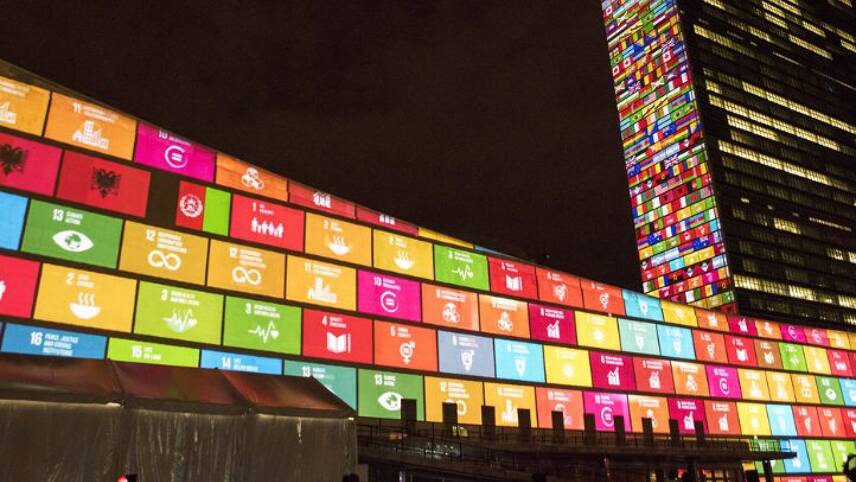Register for free and continue reading
Join our growing army of changemakers and get unlimited access to our premium content

The report calls for ambitious policy packages like the US Inflation Reduction Act
The latest Capital as a Force for Good annual report finds that despite a global spend of around $5trn in 2022 towards delivering the goals, a funding gap of $137trn still exists to deliver them in full. This is a $2trn increase on 2021 levels.
The report cites ongoing challenges including the Russian war in Ukraine and rampant global inflation as reasons for stalled progress against the Global Goals, but warns that chronic underfunding is the main issue.
“Because of the global challenges shaking the world over the past few years, we’ve been running to stand still in terms of making progress on the SDGs. But fundamentally the solutions exist to deliver the goals, and achieving the goals is within reach. Now we need to target efforts and resources to where the impact is greatest,” Force for Good’s chairman Ketan Patel said.
The report notes that policy implementation is the most critical factor to bridging the finance gap – accounting for nearly a third of the underlying targets, but that private sector investment can also act as a catalyst.
The report identifies 15 initiatives that if scale and implemented globally could address 70% of the SDGs. These include sweeping regional policy packages that match the EU’s Green Deal policies and the Inflation Reduction Act in the US, new financial mechanisms like environmental impact bonds and carbon pricing mechanisms and new private sector business models that aim to tackle systemic issues from waste to poverty and biodiversity loss.
The findings come off the back of a new report fromEarth4All, an international team of economists and scientists, in collaboration with the Foundation for European Progressive Studies (FEPS), to deliver a five-point plan for the SDGs.
The “SDGs for All” report emphasises that policymakers have the potential to significantly advance SDG implementation by the original 2030 deadline and beyond by enacting five “extraordinary turnarounds” that break away from current trends.
The key action levers include boosting investments and implementing higher taxation for the rich, reforming the International Monetary Fund (IMF) with a focus on Special Drawing Rights (SDR) allocation and providing sovereign debt relief for low-income countries. However, under the plan the SDGs would not be achieved until 2050.
Join the conversation during edie’s Sustainable Development Action Sessions
From 18-22 September, the edie team will be hosting a week-long campaign of content and events dedicated to the delivery of the SDGs.
The main event is an afternoon of free-to-attend interactive webinars, the Sustainable Development Action Sessions. Tune in on Thursday 21 September 2023 to hear from experts at organisations including the UN Global Compact, Velux Group and SailGP. Click here for a full agenda and to register.


Please login or Register to leave a comment.